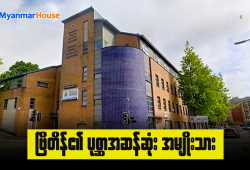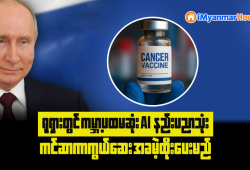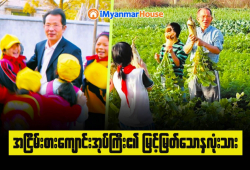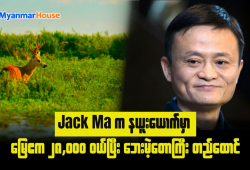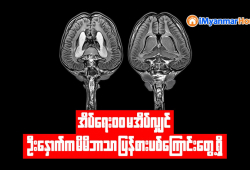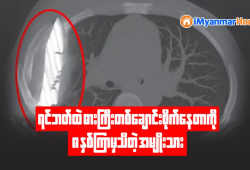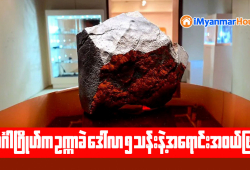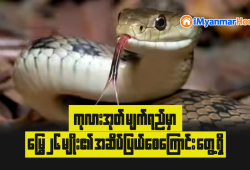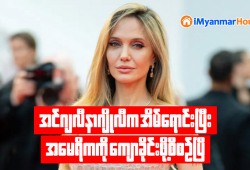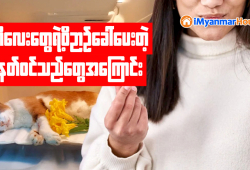
Foreign Property News | Posted by Aye Myat Thu
Patients who have died or been admitted to intensive care with Covid-19 have been found to be deficient in a vitamin found in spinach, eggs, and hard and blue cheeses, raising hopes that dietary change might be one part of the answer to combating the disease.
Researchers studying patients who were admitted to the Canisius Wilhelmina hospital in the Dutch city of Nijmegen have extolled the benefits of vitamin K after discovering a link between deficiency and the worst coronavirus outcomes.
Covid-19 causes blood clotting and leads to the degradation of elastic fibres in the lungs. Vitamin K, which is ingested through food and absorbed in the gastrointestinal tract, is key to the production of proteins that regulate clotting and can protect against lung disease.
The Dutch researchers are now seeking funding for a clinical trial, but Dr Rob Janssen, a scientist working on the project, said that in light of the initial findings he would encourage a healthy intake of vitamin K, except to those on blood-thinning medications such as warfarin.
He said: “We are in a terrible, horrible situation in the world. We do have an intervention which does not have any side effects, even less than a placebo. There is one major exception: people on anti-clotting medication. It is completely safe in other people.
“My advice would be to take those vitamin K supplements. Even if it does not help against severe Covid-19, it is good for your blood vessels, bones and probably also for the lungs.”
Janssen added: “We have [vitamin] K1 and K2. K1 is in spinach, broccoli, green vegetables, blueberries, all types of fruit and vegetables. K2 is better absorbed by the body. It is in Dutch cheese, I have to say, and French cheese as well.”
A Japanese delicacy of fermented soya beans called natto is particularly high in the second type of vitamin K and there may be cause for further studies into its health benefits, Janssen said.
“I have worked with a Japanese scientist in London and she said it was remarkable that in the regions in Japan where they eat a lot of natto, there is not a single person to die of Covid-19; so that is something to dive into, I would say.”
The research, undertaken in partnership with the Cardiovascular Research Institute Maastricht, one of Europe’s largest heart and vascular research institutes, studied 134 patients hospitalised for Covid-19 between 12 March and 11 April, alongside a control group of 184 age-matched patients who did not have the disease.
Jona Walk, a second researcher on the study, which was submitted for peer review on Friday, said: “We want to take very sick Covid-19 patients and randomise so that they get a placebo or vitamin K, which is very safe to use in the general population. We want to give vitamin K in a significantly high enough dose that we really will activate [the protein] that is so important for protecting the lungs, and check if it is safe.”
News is under threat ... … just when we need it the most. Millions of readers around the world are flocking to the Guardian in search of honest, authoritative, fact-based reporting that can help them understand the biggest challenge we have faced in our lifetime. But at this crucial moment, news organisations are facing an unprecedented existential challenge. As businesses everywhere feel the pinch, the advertising revenue that has long helped sustain our journalism continues to plummet. We need your help to fill the gap.
We believe every one of us deserves equal access to quality news and measured explanation. So, unlike many others, we made a different choice: to keep Guardian journalism open for all, regardless of where they live or what they can afford to pay. This would not be possible without financial contributions from our readers, who now support our work from 180 countries around the world.
We have upheld our editorial independence in the face of the disintegration of traditional media – with social platforms giving rise to misinformation, the seemingly unstoppable rise of big tech and independent voices being squashed by commercial ownership. The Guardian’s independence means we can set our own agenda and voice our own opinions. Our journalism is free from commercial and political bias – never influenced by billionaire owners or shareholders. This makes us different. It means we can challenge the powerful without fear and give a voice to those less heard.
Reader financial support has meant we can keep investigating, disentangling and interrogating. It has protected our independence, which has never been so critical. We are so grateful.
We need your support so we can keep delivering quality journalism that’s open and independent. And that is here for the long term. Every reader contribution, however big or small, is so valuable.
Ref: The Guardian
